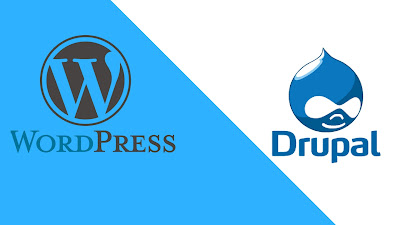Are you planning on building a new website, perhaps for your new startup business? It’s important that you choose the right content management system right off the bat, so you will be able to run an outstanding site at a minimum monthly price. At the moment, two CMSs stand out from the crowd: WordPress and Drupal. In this post, we’re going to give you a brief introduction to the two and examine their similarities and differences to help you figure out which one is right for your business.
Introduction to WordPress
WordPress started out as a blogging platform but is now the most popular CMS in the world. It lets you build great SEO friendly sites out-of-the-box, and you can add advanced features to it with the help of over 45000 plugins.
Introduction to Drupal
Drupal is a powerhouse of a CMS. The specialty of the platform is that it is very customizable and can handle enterprise level websites with ease thanks to its module-based design. You need solid technical knowledge to set a site up on it.
Similarities between the two
- Both have the search engine friendly design out-of-the-box.
- You can download and use the software for free.
- You can extend the core functionalities of both with the help of plugins/module extensions.
- Building mobile-friendly sites is easy on both, thanks to the availability of responsive themes.
- You can customize both platforms extensively thanks to in-depth developer APIs.
Differences between the two
- WordPress is suitable for DIY first-time site builders, but Drupal-based sites need technical knowledge to be set up.
- It’s easier to update WordPress sites than Drupal ones.
- The former platform is less secure than the latter, if we look at hacking history.
- You need to install plug-ins to get analytics data on the former, but the latter has the feature built-in.
- WordPress sites can get sluggish if too many plugins are installed, but Drupal-based ones don’t.
Which one is right for you?
If you’re still having trouble deciding which one is best for you, we recommend you consult with experienced CMS developers, who will be able to help you pick the right one for your unique business.


